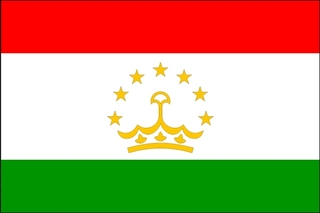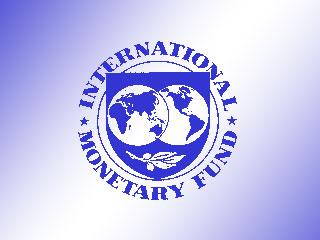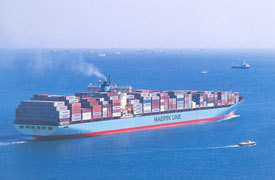The Russian Gas monopoly Gazprom intends to take action in order to force The Ukraine to pay for gas and stop the country from exporting it to Europe.
Published:
7 July 2000 y., Friday
Russian deputy Prime Minister Viktor Khristenko has reported that gas deals between the two CIS members are to be radically revised and a new payment procedure is to be introduced soon. By October 1st this year, the Russian government will have prepared a set of documents regulating gas transactions between the two states. Judging from the published excerpts from those documents, Russia will no longer tolerate The Ukraine’s non-payment and gas theft.
Firstly, to stop gas deliveries through The Ukraine would mean loosing lucrative contracts with Germany. Secondly, Kiev has cunningly managed to use Gazprom’s and the Russian authorities’ interests to suit its own ends, by promising the Kremlin that The Ukraine could delay its bid to enter NATO. The Russian authorities willingly bought these promises.
Politics aside, there were also economic reasons for Russia’s lenience towards The Ukraine. Gazprom has always acted as a private legal entity, although the Russian government holds a 41% stake in the gas giant. However, Gazprom continuously delayed tax payments, omitted dividends, and state representatives were given a disproportionately low share of the seats on Gazprom’s board of directors.
The government therefore did not take great pains to defend Gazprom’s interests.
Russia also insists that The Ukraine should stop illicit gas deliveries to Europe. The problem is that The Ukraine purchases Russian gas on favorable terms, regularly delays payments to Gazprom and then resells gas at high European prices, thus disrupting the stability of European gas supplies.
Šaltinis:
Internet
Copying, publishing, announcing any information from the News.lt portal without written permission of News.lt editorial office is prohibited.
The most popular articles
 A record 131 economies around the globe reformed business regulation in 2008/09, according to the IFC–World Bank Doing Business 2010 report.
more »
A record 131 economies around the globe reformed business regulation in 2008/09, according to the IFC–World Bank Doing Business 2010 report.
more »
 The World Bank’s Board of Directors today approved a US$5 million grant to improve the quality of electricity services in Haiti and strengthen the financial and operational performance of Electricité d’Haïti, the public electricity utility.
more »
The World Bank’s Board of Directors today approved a US$5 million grant to improve the quality of electricity services in Haiti and strengthen the financial and operational performance of Electricité d’Haïti, the public electricity utility.
more »
 Firuza Ziyoeva, a 42-year old mother of five, lacks any sustainable income for her family – her husband is unable to work due to disabilities and their children are all young.
more »
Firuza Ziyoeva, a 42-year old mother of five, lacks any sustainable income for her family – her husband is unable to work due to disabilities and their children are all young.
more »
 The Managing Director of the International Monetary Fund (IMF), Mr. Dominique Strauss-Kahn, made the following statement today regarding Singapore’s commitment to increase fourfold its contribution to the Fund’s New Arrangements to Borrow (NAB) by US$1.5 billion, to a total of US$2 billion.
more »
The Managing Director of the International Monetary Fund (IMF), Mr. Dominique Strauss-Kahn, made the following statement today regarding Singapore’s commitment to increase fourfold its contribution to the Fund’s New Arrangements to Borrow (NAB) by US$1.5 billion, to a total of US$2 billion.
more »
 Statistics Lithuania reports that, based on non-final data obtained from customs declarations and Intrastat reporting data, exports in I half-year 2009 made LTL 19 billion, while imports – LTL 21.2 billion.
more »
Statistics Lithuania reports that, based on non-final data obtained from customs declarations and Intrastat reporting data, exports in I half-year 2009 made LTL 19 billion, while imports – LTL 21.2 billion.
more »
 Since 7 September 2009 AB Bank SNORAS for residents and economy subjects begins to distribute a new savings product - certificates of deposits.
more »
Since 7 September 2009 AB Bank SNORAS for residents and economy subjects begins to distribute a new savings product - certificates of deposits.
more »
 “We are 53 diverse countries differently affected by the crisis, 1 billion people that cannot be ignored”. That was the stark message to Members of Parliament's Development Committee from Donald Kaberuka, the head of Africa's Development Bank at a hearing on 3 September in Brussels.
more »
“We are 53 diverse countries differently affected by the crisis, 1 billion people that cannot be ignored”. That was the stark message to Members of Parliament's Development Committee from Donald Kaberuka, the head of Africa's Development Bank at a hearing on 3 September in Brussels.
more »
 The European Investment Bank has granted a EUR 450 million loan to AENA (Aeropuertos Españoles y Navegación Aérea) for upgrading and expanding Spain’s air traffic control facilities in order to optimise their overall efficiency and ensure that they comply with international regulations.
more »
The European Investment Bank has granted a EUR 450 million loan to AENA (Aeropuertos Españoles y Navegación Aérea) for upgrading and expanding Spain’s air traffic control facilities in order to optimise their overall efficiency and ensure that they comply with international regulations.
more »
 Statistics Lithuania informs that in August 2009, against July, prices for total industrial production sold increased by 0.9 per cent.
more »
Statistics Lithuania informs that in August 2009, against July, prices for total industrial production sold increased by 0.9 per cent.
more »
 Despite signs the near two-year U.S. recession may be over - Americans are still finding it hard to get a job.
more »
Despite signs the near two-year U.S. recession may be over - Americans are still finding it hard to get a job.
more »